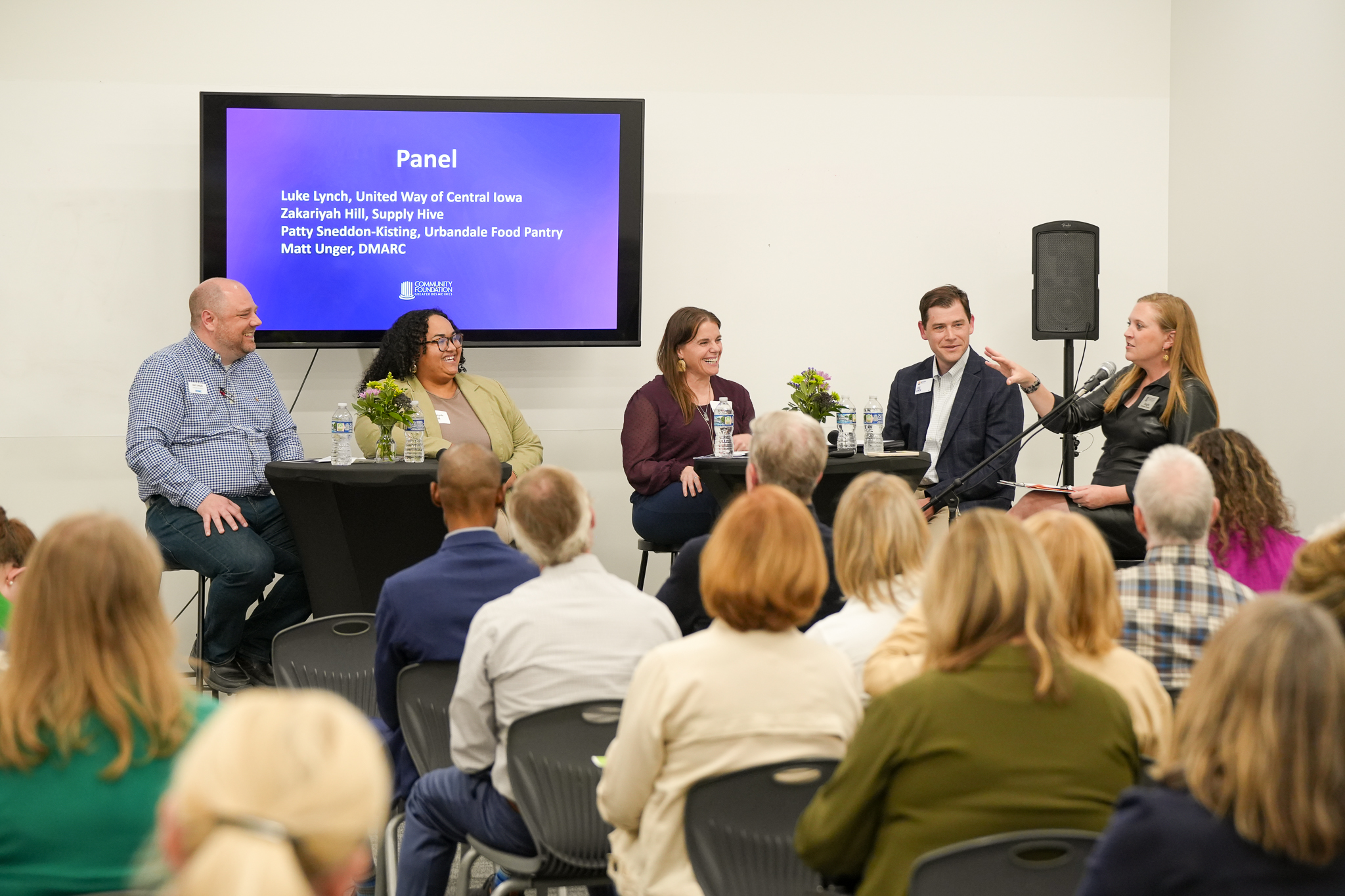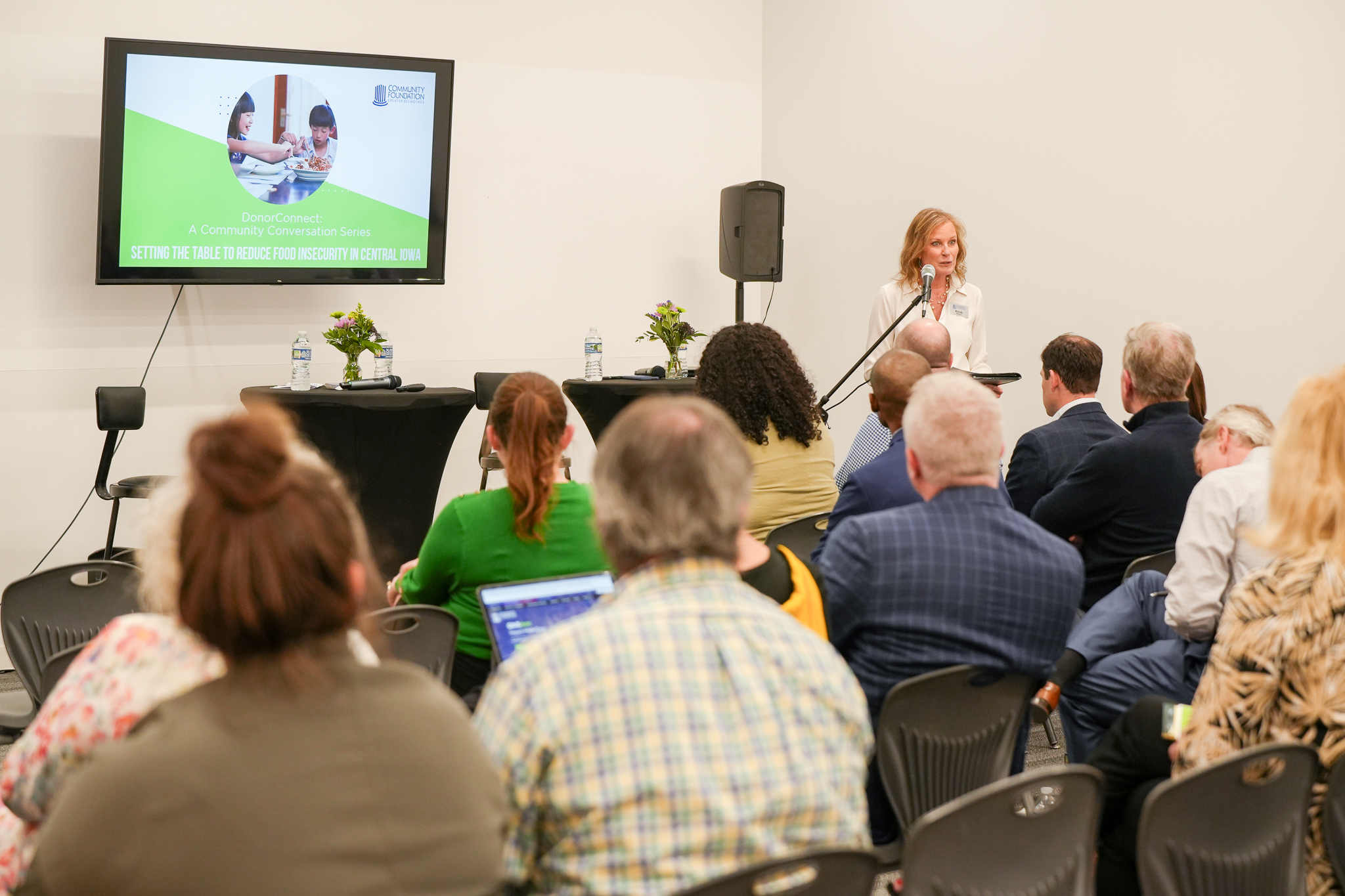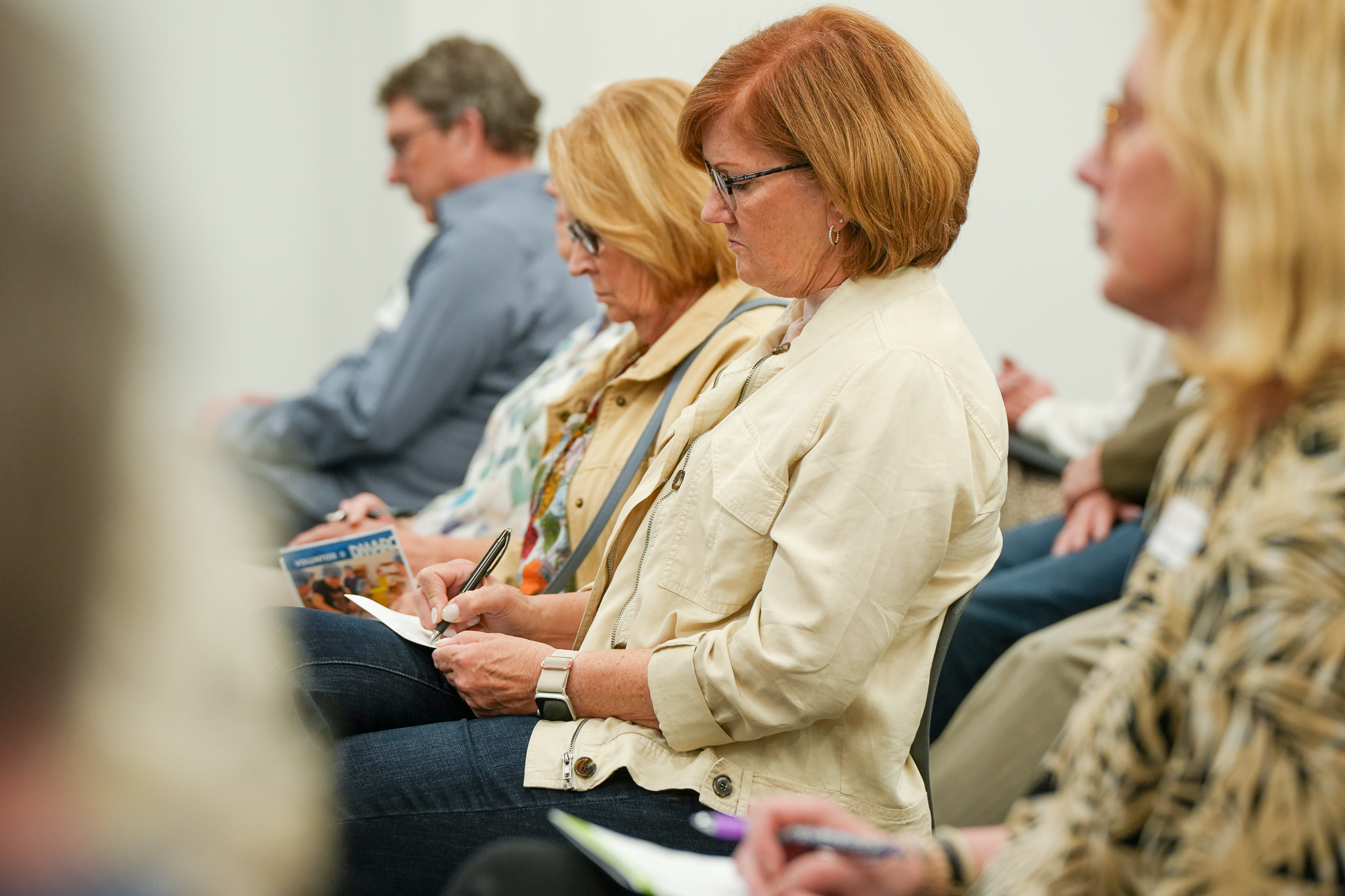Highlights from DonorConnect: Setting the Table to Reduce Food Insecurity in Central Iowa
Apr 2, 2025

Access to food should not be an impossible choice. With record levels of food insecurity throughout Greater Des Moines, combined with economic factors and rising costs, our community came together to launch the Central Iowa Food Security Plan last year and the work continues. At our recent DonorConnect: Setting the Table to Reduce Food Insecurity in Central Iowa, panelists shared about the progress of this collaborative and connected community effort focused on addressing the challenge.
The plan envisions a connected community that is committed to tackling root causes through shared accountability. This collaborative approach fosters independence among providers while encouraging collaboration and transformative change. By taking intentional, collective actions, our region can set an example for other communities in addressing the multi-faceted challenges of food insecurity. The panelists shared about the progress of this collaborative and connected community effort focused on addressing the challenge. Thank you to the following presenters for guiding us in this critical conversation:

Insights from Panelists
1. How does the Central Iowa Food Security Plan inform the work?
The plan emphasizes the importance of collecting data in an equitable, respectful and dignified manner. The data helped providers learn more about how to offer a welcoming and dignified experience for neighbors in need of food and services through an accessible and connected network of providers. This has been a breakthrough for organizations, as it has broken down barriers and enhanced collaboration in finding ways we can work together, rather than work in silos.
The data has also been used to tell the story of food insecurity in Central Iowa to better inform services, design and decision-making. With the stories and data organizations have been able to develop, advocate and implement policy solutions that are informed by data and voices of people with lived experience to improve the quality of life for neighbors facing food insecurity. Overall, creating a community that grows stronger together by honoring our neighbors’ lived experience and building a collaborative and connected community.
2. What is the reality of current needs in our community?
DMARC has 14 pantries across the metro. Last year they served 75,000 individuals, one third of whom were using pantry services for the first time. The challenges of food insecurity continue to grow each year as household income is not keeping up with the cost of living. United Way of Central Iowa shared a recent report on families in Iowa that are Asset Limited, Income Constrained, Employed (ALICE); ALICE families in Central Iowa earn just above the Federal Poverty Level, but less than what it costs to make ends meet, leaving them unable to afford the basic needs of housing, childcare, food, transportation, healthcare and technology. In 2022, of the 1,307,751 households in Iowa, 483,724 — 37% — were below the ALICE Threshold.
3. What should we consider when looking for improvements and solutions around food insecurity?
Food should not be an impossible choice for neighbors in our community. A systems level focus takes advocacy and education around food insecurity in our community. The environment and needs surrounding food insecurity continues to change, and we need to be flexible and responsive to these changes in real-time.


Ways to Get Involved
Panelists encouraged the audience to keep asking questions anywhere they can: at the dinner table, with their neighbors or in their faith communities. These questions can lead to additional dialogue that can challenge the narrative of who the issue affects. For example, last fiscal year, only 19% of people receiving food assistance from DMARC were unemployed adults (18-64) the rest were children (35%, 0-17 years old), seniors (8%, 65 and up) and working or disabled adults (38%).
These conversations can also encourage others to become more involved and find one more move they can help make to address the challenge. Whether that’s starting to ask questions in their networks, becoming involved in advocacy work or giving time, money or leadership to support the organizations dedicated to ensuring that everyone in our community has dignified access to food.
Additional resources can be found below for ways to stay informed and get involved.
Additional Resources
Resources from Panelists
Community Foundation Resources
GIVEdsm is an online resource that makes giving simple. Learn about the pressing needs and promising opportunities of area nonprofits and support local organizations that match your passions. To give to organizations featured at the DonorConnect event and others doing similar work visit GIVEdsm.org and select the food insecurity area of interest.
DonorConnect is part of a free conversation series designed to bring our community together to learn about and discuss our region’s most pressing issues and promising opportunities. Look for future events by visiting DesMoinesFoundation.org/Events.
As always, our team is here to simplify your giving to the causes you care about. Whether considering ways to maximize your giving today, involving your family in charitable conversations or planning how to leave a legacy for generations to come – we are here to create a personalized giving plan for you. Contact our team to learn more about customized giving solutions that enable you to give back in the ways that meet your unique goals. We are better together.